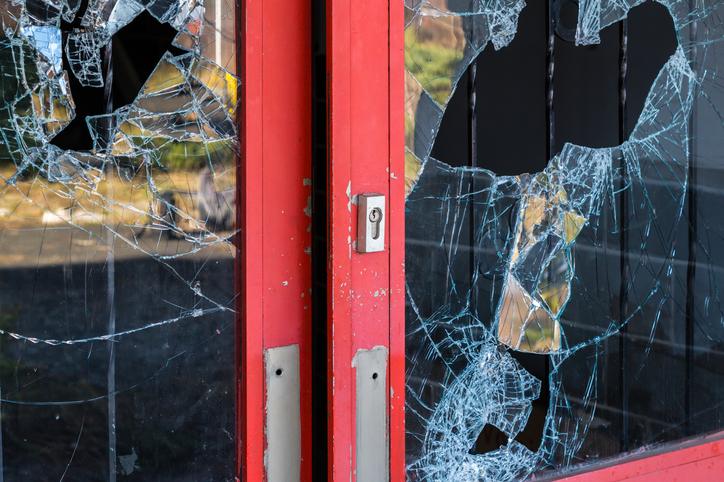Burglary
Burglary is when someone breaks into a building, for example your house, and steals, takes or pinches something.
This content has been written for children and young people. If you’re looking for information for over 18s, visit our Types of Crime information about burglary.
Burglary affects many people every year. It can leave you feeling upset, angry and scared that someone has been in your home and taken some of your or your family’s things.

Burglaries can happen in many different ways. You and your family may have been away from home at the time, maybe someone tricked their way into your house, or perhaps you were busy or asleep when they broke in.
Most burglaries tend to be random rather than planned. Burglars usually choose houses that seem to have little or no security, or if they know that the owners are on holiday or not at home. There are certain times of the year where the amount of burglaries goes up. For example at Christmas time, when burglars know you have more valuables in the home, or during the summer when people leave windows open to stay cool.
How you react to burglary will depend on lots of different factors, and everyone will respond differently. However you feel, remember that it’s never your fault – only the offender is to blame and nobody has the right to break into your house, or take or destroy your things.
Even if nothing has been stolen, people are often upset at the thought that a stranger has been in their home. Sometimes people don’t feel safe in their home after a burglary, and a lot of burglary victims feel angry, upset or afraid immediately after the crime. Many young people find that these feelings go away over time, but there are no rules and how you react is personal to you.
You may find that you have no reaction straight away but later on you may start to feel more upset about what’s happened. The effects of a crime like this can last a long time. If you’ve been affected by the crime there are people you can talk to and who can help you cope with what’s happened. And if you decide you want to report the crime to police, it will be taken seriously.
Being a victim of burglary can make you feel worried, sad, scared or angry, especially if you feel like you’re trying to deal with this all on your own. Many young people find that it can help if they talk to someone. Some things you can do are:
- Think about reporting it to the police. If you think you are at immediate risk of getting hurt, call 999.
- Talk to an adult you trust – this could be a family member, a teacher, your youth worker, social worker or support worker. Tell them about what’s happened and how it has made you feel. It can be difficult to know how to have this conversation; we have some tips on asking for help.
- If you feel unsafe because of what’s happened, talk to your trusted adult about developing a safety plan that would help you choose how best to keep yourself safe.
- You might want to sit with your trusted adult and look through some practical advice about how to stay safe from burglary with them. You can find more information on the Crimestoppers website.
- Be careful about what information you put on social networking sites, such as if you are going away or where you live.
Young people who’ve been a victim of burglary often ask ‘why is this happening to me?’ It’s important to know that this is not your fault and you can get help. If you are worried about a friend, we have some tips on how you can start the conversation and get them the right help.
Victim Support’s Children and Young People Services – you can contact your nearest Victim Support office, call the 24/7 Supportline, contact us via live chat, or if you are 16 or older, you can create a My Support Space account. This is a free, safe and secure online space where you can work through interactive guides to help you move forward after crime.
Childline – 24-hour support for young people, both on the phone and through online chats and message boards, on crime, safety and a range of other issues: 0800 1111.
The Mix – information for under 25s on a whole range of issues. Get confidential help by email, text, webchat or phone: 0808 808 4994.
Crimestoppers – if you want to provide information about a crime without talking to the police, you can contact Crimestoppers anonymously on 0800 555 111.
